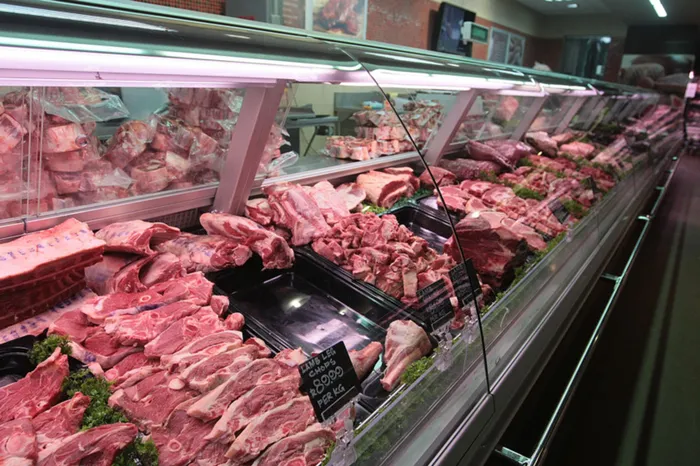Sarb poised for rates cut despite inflation tickin up to 4-month high
INFLATION

Stats SA chief director of price statistics, Patrick Kelly, said the annual rate for food and non-alcoholic beverages has notably surged to a 15-month high of 5.1%, with meat prices—especially beef—being the primary culprit behind this uptick.
Image: Simphiwe Mbokazi/Independent Newspapers
The South African Reserve Bank (Sarb) may once again loosen its monetary policy before the year draws to a close despite recent data revealing an uptick in consumer price inflation.
This comes as the Sarb’s Monetary Policy Committee (MPC) will announce its decision on the policy rate next week after cutting the repo rate by 25 basis points to 7.25% per annum in May.
Data from Statistics South Africa (Stats SA) on Wednesday showed that the headline consumer price index (CPI) edged higher to 3.0% in June after holding steady at 2.8% in April and May.
This was the 11th consecutive month in which inflation remained below the 4.5% midpoint of the Sarb’s 3-6% target range.
Stats SA chief director of price statistics, Patrick Kelly, said the annual rate for food and non-alcoholic beverages has notably surged to a 15-month high of 5.1%, with meat prices—especially beef—being the primary culprit behind this uptick.
The price of beef significantly rose on the back of the food and mouth disease outbreak in meat producing provinces, reducing the supply of red meat more than the demand in the market.
"Meat – particularly beef – continues to be the main driver of food inflation," Kelly said.
"Beef prices spiked for a third successive month, with high annual and monthly increases recorded for stewing beef, mince and steak. Stewing beef rose by an annual 21.2%, the fastest pace on record since the current CPI series began in January 2017."
Analysts are closely watching the Sarb's next moves as they navigate the complexities of a fluctuating economic landscape.
Dr Elna Moolman, Standard Bank Group head of South Africa Macroeconomic Research, said consumer inflation re-entered the Sarb's target range again in June after falling below the 3-6% target range for three consecutive months.
“Such low inflation provides considerable support for consumers, given that most wage increases are higher than this low prevailing rate of inflation. It also arguably supports the case for the Reserve Bank to cut interest rates further at the upcoming MPC meeting next week,”Moolman said.
“We do expect inflation to continue trending higher in the coming months, but it should remain reasonably benign.”
On a monthly basis, the CPI increased 0.3% following a 0.2% rise in May.
Meanwhile, the annual core inflation rate edged down to 2.9% in June, the lowest since April 2021, from 3% in each of the previous two months.
David Omojomolo, Africa economist at Capital Economics, noted that the slowdown in core inflation has set a favourable backdrop for potential interest rate cuts, reinforcing the Sarb's stance against excessive underlying price pressures.
Omojomolo projects considerable relief for consumers, forecasting further cuts by year-end
“We expect rates to be lowered by more than most currently anticipate by the end of next year. The outturn was a touch stronger than our forecast that inflation would stay unchanged at 2.9% year-on-year, but in line with the LSEG consensus,” Omojomolo said.
“We expect a 25 basis points cut to 7.00% at the MPC meeting next week. And we think the Sarb will cut interest rates by another 125 basis points to 5.75% by end-26, further than most expect – even if the inflation target is lowered.”
In a recent statement, Sarb Governor Lesetja Kganyago hinted at a potential shift in the bank's inflation target, considering a lower objective of 3% in light of internal and external analyses indicating that its current target may be unusually high.
Nedbank economist Busisiwe Nkonki fforesees ongoing upward pressure on inflation during the second half of the year, primarily driven by food and fuel costs.
The ongoing foot-and-mouth disease outbreak is expected to result in soaring meat prices, compounded by unpredictable geopolitical developments impacting the global price of Brent crude oil.
“We believe that the benign inflation outlook and muted domestic demand, amongst other factors, will convince the MPC to cut interest rates by 25 basis points next week,”she said.
“However, the MPC’s decision will also be influenced by the US Fed’s decision in the same week. Therefore, there is a chance that the MPC could delay the cut to September.”
BUSINESS REPORT